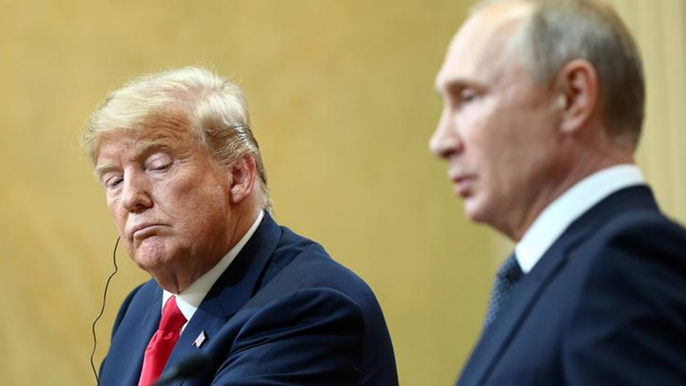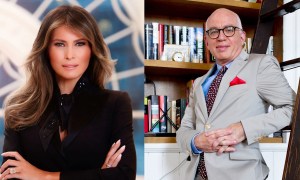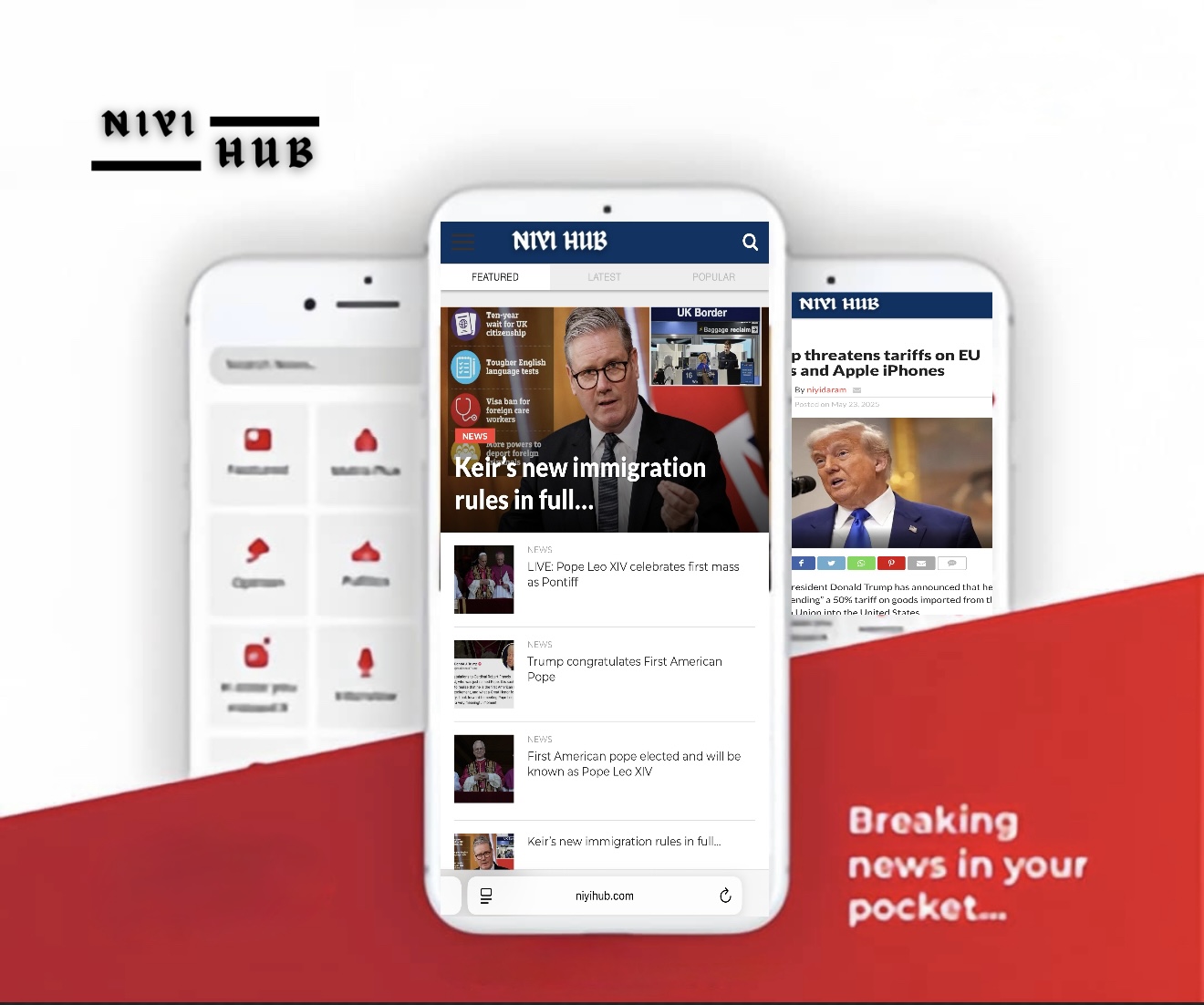President Donald Trump announced on Sunday that he is likely to have a phone call with Russian President Vladimir Putin on Tuesday. Putin’s spokesperson, Dmitry Peskov, and the White House have confirmed the call.
Trump is eager to fulfill his campaign promise of making a deal with Putin to end the war in Ukraine, which he has described as a “bloodbath.”
Here’s what to expect and what not to expect from their conversation.

Ukrainian President Volodymyr Zelenskyy, left, President Donald Trump and Russian President Vladimir Putin
Both Trump and Putin are expected to maintain a cordial and respectful tone, demonstrating their diplomatic skills and talents. Unlike former President Biden and his Vice President Kamala Harris, who often exasperated by Putin’s recalcitrance, calling him a “killer,” Trump refrains from insulting Putin. The master of the Art of the Deal understands the intricacies of diplomacy and knows how to navigate the delicate dance of negotiations.
Beneath the surface, neither Trump nor Putin share any trust. Despite smiles and positive gestures, during his first term, Trump pursued the most aggressive anti-Russia policy since Ronald Reagan. He authorized lethal aid to Ukraine, sanctioned the Nord Stream 2 pipeline, expelled Russian spies posing as diplomats from its embassy, and shut down three Russian facilities in the U.S. that effectively served as espionage bases targeting the homeland. Additionally, Trump took several measures to prevent Russia from exploiting vulnerabilities in America’s military strategy, which heavily relies on technology.
In return, Putin views Trump as an exceptionally challenging and worthy adversary, someone who is unpredictable and difficult to manipulate, unlike previous presidents like Bush, Obama, and Biden. In 2017, when asked by a journalist if he was disappointed in Trump after the closure of Russian diplomatic facilities in New York, Washington, and San Francisco, Putin dismissed the question as “naïve.” The former KGB operative asserted that Trump is “not my bride, and I’m not his groom.”

Russian President Vladimir Putin delivers his address to the nation in Moscow on March 23, 2024. (Mikhail Metzel/Pool/AFP via Getty Images)
In 2018, after the Helsinki summit, Putin ridiculed the notion that Trump trusted him. He asserted, “You can’t trust anyone. Where did you get the idea that Trump trusts me, and I trust him completely?” Putin continued, “He [Trump] defends the interests of the United States, and I of Russia.”
Serious and strong heads of state, particularly when dealing with each other, such as Russia and the United States, two exceptional great powers, rarely consider feelings and emotions in their statecraft.
Regarding the substantive aspects of the Trump-Putin deal on Ukraine, there is no expectation of a breakthrough on Tuesday. However, both sides are likely to report positive progress, though specific details will be kept confidential.

President Donald Trump addresses a joint session of Congress at the Capitol, Tuesday, March 4, 2025. (AP Photo/Ben Curtis)
The 30-day ceasefire deal is highly unlikely to be achieved. Putin is determined to fight until the very end, as recently admitted by President Trump.
Washington could and likely will intensify economic pressure on Moscow, as suggested by U.S. Treasury Secretary Scott Bessent and National Economic Council Director Kevin Hassett. Hassett asserted that Trump has a variety of tools at his disposal, including “carrots or sticks,” to pressure Putin.
However, the Russians believe Team Trump is bluffing, considering the risks involved in playing cards with global economic consequences. They argue that more aggressive sanctions against Russia’s energy sector would backfire, leading to even higher prices here. Despite this, Moscow remains confident that it can withstand sanctions, as it has done in the past. Notably, no economic sanctions have altered Putin’s behavior in the past decade.

Russian President Vladimir Putin delivers his address to the nation in Moscow on March 23, 2024. (Mikhail Metzel/Pool/AFP via Getty Images)
President Trump likely recognizes that negotiating a deal with Putin is more challenging than anticipated. By making it a campaign promise, Trump may have set an unrealistic timeframe, potentially giving Putin an advantage. Trump’s Russia advisors should have clearly explained the intricacies of the Russia-Ukraine conflict to the commander in chief, highlighting the consequences of Washington’s decision to push Ukraine into NATO.
The Russian media is lauding Putin’s “six words” message to an “impatient” Trump (My za mir, no est’ nyuansy, in Russian). Putin’s recent televised statement asserted Russia’s commitment to peace but acknowledged the existence of nuances. On Sunday, Trump clarified that he was being sarcastic when he promised to end the Russia-Ukraine war within 24 hours during his campaign trail.
On Sunday night, speaking with journalists on Air Force One, Trump appeared more realistic and composed.
“We aim to find a way to end that war,” he said. “It’s possible, but it’s uncertain. However, I believe we have a strong chance of success.”
If Trump realizes that Putin is deliberately delaying the process, he should cancel the call and walk away. Alternatively, allowing Putin to prolong the situation might soften his stance, potentially leading to a reconciliation if the Russians genuinely desire peace. However, resolving the current conflict through a phone call seems highly unlikely, given the complexities and entrenched positions involved.
FoxNews

















